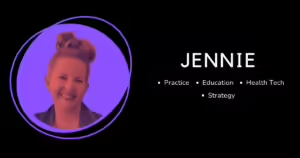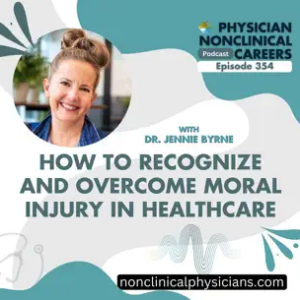Staffing Shortages
Moral injury isn’t just impacting physicians and other healthcare clinicians. It is impacting the bottom line.
One of the most interesting trends in healthcare has been the rise of the locums tenens provider. Locums tenens comes from Latin “to hold the place of, to substitute for.” Traditionally, a physician or a nurse would be hired as a “locums” if there was a gap in staffing at a hospital for staff illness or vacation.
Now, healthcare organizations are hiring more locums clinicians than ever. In CHG’s 2023 State of Locum Tenens Report, 64% of the healthcare facilities surveyed reported using locums tenens, 83% of which cited filling staffing vacancies as a primary motivator.*
Why are so many physicians and nurses choosing this temp work and why does it matter?
I believe one of the reasons clinicians are choosing locums work is that it minimizes moral injury. First, the pay is higher. While I do not believe money is the primary motivator for clinicians, it is a value symbol. For example, as a psychiatrist, if I am being offered $150 an hour for permanent work, versus $3000 per day to cover an inpatient unit for 2 weeks as a locums, there is a big difference. I feel more valued at the $3000 per day rate and I feel de-valued at the $150 an hour rate.
Let’s imagine I take the $3000 per day locums position for two weeks at a hospital. When I go to work for a hospital that has been struggling to find a psychiatrist and chronically short-staffed, I get to feel like a hero. I get more respect and praise because I am there to save the day. I feel valued.
Working in the hospital for two weeks, I learn what I need to learn to get the job done. I see things around me I don’t like, but I don’t get into the weeds. I don’t have enough time to see where I am being asked to do things that go against my values. I don’t have enough time to see where other people are doing things that go against my values. I am there to swoop in, do the basics, and then leave.
I also don’t have enough time to get to know the leadership of the hospital. My relationship with them is good because I am helping them fix a problem. I don’t get into the politics of the institution and I don’t see where the leaders are not addressing moral injury. I get a handshake and a “thank you” from the leaders.
The other great thing for me as a psychiatrist doing locums work is that I get to take breaks. The high pay of the assignment allows me to be creative and flexible with my schedule. I get to take vacations when I want for as long as I want. I get to visit new places if I choose a new location for assignments. I can find ways to take better care of myself and my family because I am not tied down to a traditional job with traditional work hours and responsibilities.
Sounds good, right?
The shift towards locums work should be telling us something. Most clinicians enjoy working with others and enjoy being part of a healthcare organization that is doing good work. Most clinicians are not typically risk-takers and enjoy stability. So the fact that they are moving in large numbers to locums work tells us that they are suffering in traditional roles.
One of the problems with the shift to locums is that staffing shortages are exacerbated at hospitals and other outpatient practices. Because the organizations have to pay more for locums workers, they have less budget to hire additional full-time clinicians. Because it is harder to find full-time clinicians they have to lean on the locums firms that staff positions. Because clinicians are more likely to burn out and leave, retention is a problem. Locums promises to fix that problem.
Moreover, a revolving door of clinicians is bad for teams and bad for patients. One of the most valuable things about medicine is the trust and support between a clinician and the patient, and between the clinician and their team. Locums work makes it difficult to build trust within teams. Locums work makes it difficult to build trust within teams or to make trusting relationships with patients over time.
The one situation where locums works best is in traditional shift work like ER or inpatient. Because patients do not stay in the ER or inpatient unit for very long, it is easier to manage with a rotating staff. However, the teamwork is still difficult in these settings, and that can be reflected onto the patient experience.
Have you been a patient recently?
Did you see a clinician that you knew for many years who was working with a team that they trusted over many years?
If you have ever been a patient in an outpatient practice with a rotating cast of characters, you have likely felt the cost of short-term work. It is hard to build trust with a clinician, only to have them replaced every 6-12 months. Having a primary care clinician that sticks with you for 1, 5, 10, or 20 years is becoming increasingly rare.
If we do not fix moral injury within our healthcare practices, I believe we will continue to see a trend towards locums work, or “gig” work. This erodes our trust and engagement with our healthcare clinicians. It worsens staffing shortages and hurts the patient experience.
*Redfield, K. (2023, July 11). 8 key takeaways from the 2023 State of Locum Tenens Report. Chg- healthcare.com. https://chg- healthcare.com/blog/takeaways-state-locum-tenens







